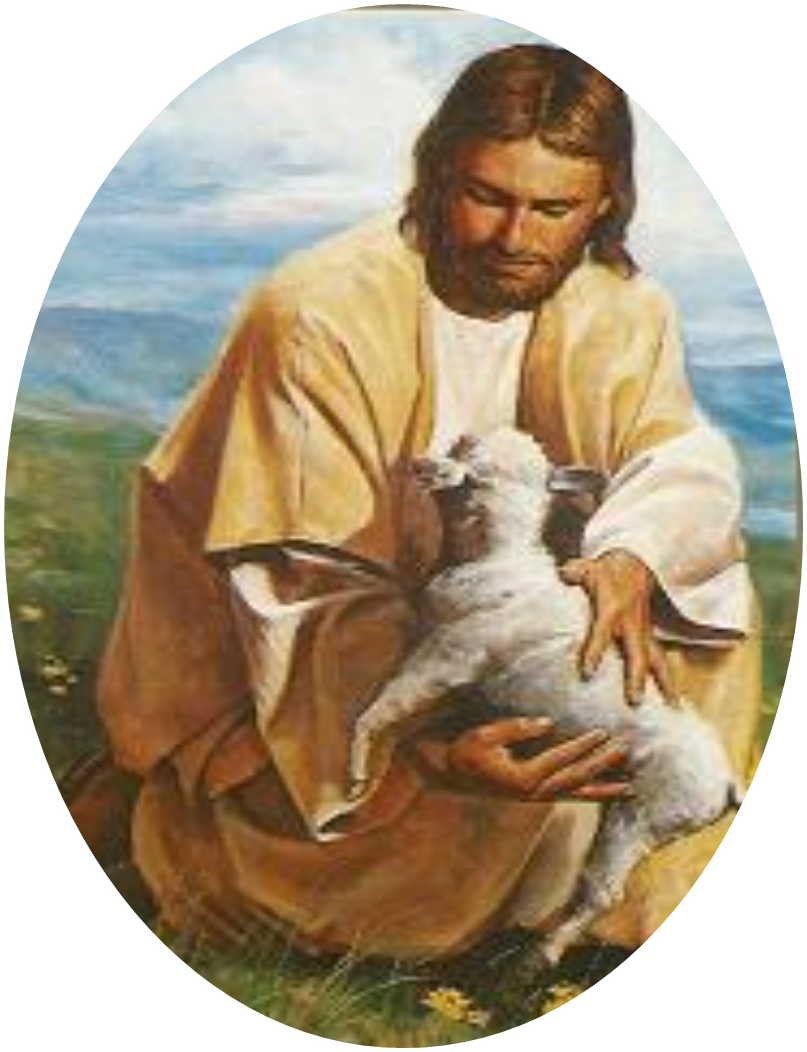

Perhaps I should have titled this article 'What Is Jesus' Job?', because that question will be answered more fully here than the titular question. Of course you know who Jesus is if you're here; but not many undertstand what he is, and why he came to us at all. Well, let me rephrase that. Not many know what his nature is, and why he came for us. Nonetheless, these I will explain to you, so long as you read this to the end.
You've heard so many titles of Jesus, like 'Lord God Almighty', 'King of kings', 'Beautiful Savior', and 'Wonderful Counselor', and of course, all these titles of Jesus are representative of his job as the Word of God, but no 'Christians' in the world today know just what Jesus' nature is as God's Word. And if we don't know, then how can we? Like with most things, we need to look in the Gospels.
Jesus' revelation to John has revealed a symbolic office of Jesus as the Lamb of God, and the term also finds a home at John 1:29. Jesus' death on the cross reveals that he serves as the fulfillment of the ordinance of the Passover, and with the shedding of his blood and the painting of it on our doors, all in the true house of Israel might live. However, you have to be willing to partake of the Lamb's sacrifice first.
Another title of a Messianic figure to come was Shiloh, meaning 'the one to whom it belongs.' This name occurs in Genesis 49:10, when Jacob blesses his son Judah, saying that the 'scepter' (authority in his family's country) wouldn't leave the genealogy until the one to whom it belongs would come. This necessitates Jesus being of the tribe of Judah, which almost all Jews were in Jesus' time. Of course the Messiah needed to be in the line of Judah; that's what God's promise to David was, and that's also apart of God's promise to Abraham about us, and God's promise to Adam and Eve. Judah's power and his 'scepter' would not leave his house until Shiloh had come, or until the one to whom all power and authority on heaven and earth had come (Matthew 26:64, 28:18; Luke 1:33; John 3:35).
The Seed of Woman as revealed in Genesis was meant to contrast from the Seed of the Serpent, which would be Jesus and Satan and his minions respectively (Genesis 3:15). According to the prophecy, there would be enmity between Satan and the Woman, Eve. The Seed, meaning offspring, refers to all of righteous humanity through the line of Seth and eventually Israel. This prophecy also refers to the Second Adam, Jesus, who would be struck on the heel by Satan, but in the end, God's Anointed One would crush his head.
Jesus as the triumphant Lion of Judah is a popular idea among Christians and the use of this symbol is almost universal. The contrast of the Lion to the Lamb makes for a dual nature of Jesus, both as a mighty revolutionary lion waging war against Satan, and a humble sacrificial lamb, bound to the altar as God to his covenants. First, Jesus came like us, a gentle lamb. But when he return, he will be as the lion, with justice he shall make war.
Jesus never directly made any bold statements as to who he was in relationship to the Godhead. However, he did leave little clues, breadcrumbs if you will, that gave us hints to his true purpose for coming to us, as a way to separate the wheat from tares. Jesus told his disciples that his teachings were the only way to salvation (John 14:6, Matthew 7:24); but he did not say this in a 'believe in me or DIE' way; he was genuinely concerned for the welfare of our souls when he said this. He warned us that trusting anyone else but him was dangerous, even family, friends, and ourselves (Luke 14:26). But I know why you're reading this: you want me to tell you whether or not Jesus is God. The answer is: irrelevant.
Does it take away from his God-given authority if he isn't God? Of course not! Is he not our Savior if he is? No! Call this a cop-out, but you know it's true. Arianism, Servetianism (the Duality of God movement), non-Trinitarianism, are now irrelevant, and they always will be, because we now use our petty arguments a excuses to rebel against God. The Trinity exists, because both the Father, Jesus and the Spirit all exist in the same state of being, or nature: God's. The Father is God, Jesus holds all God's authority here and now, and the Spirit gives us strength from God. But this is not a doctrine; this is a way of understanding God. If you don't want to use the Trinity, go ahead. But don't always think about it. Don't write catachisms about it. Don't preach for hours about it. Obey Jesus and do what he said, or get out before you get hurt.
Don't even believe me when I tell you who Jesus is. I know you're just going to make me an idol, when you don't need me at all. I'm just an anonymous messenger who wants to tell you an inconvenient truth instead of the reassuring lies that everyone's told you before. God bless, and Amen.
